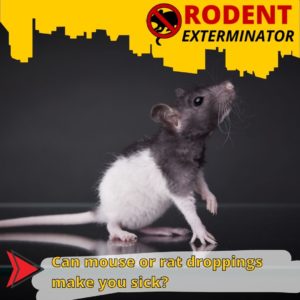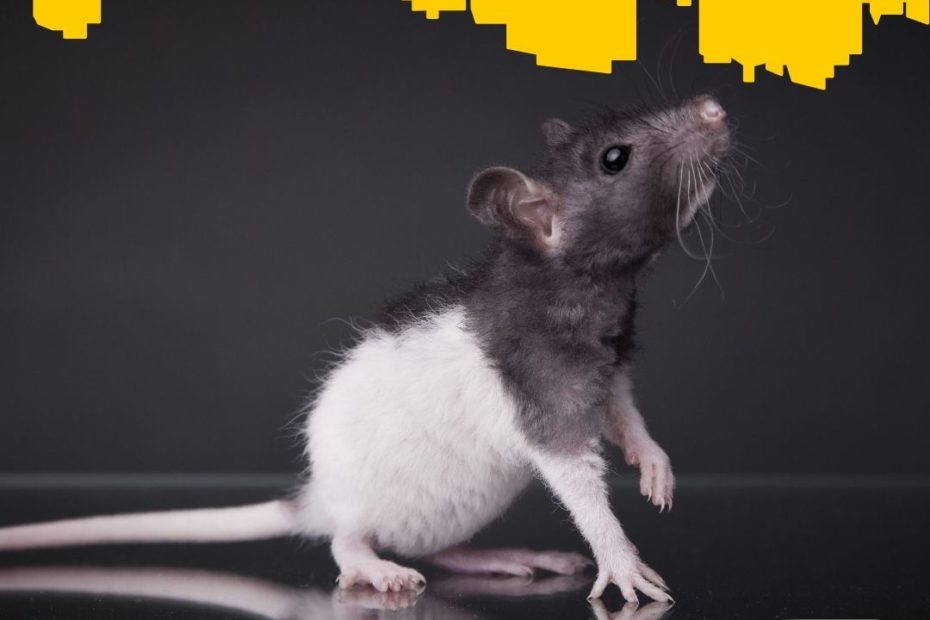It’s no secret that rodents can be a major nuisance. They can damage property, contaminate food, and spread disease.
But what many people don’t know is that both mouse and rat droppings can cause serious health problems.
They can contain bacteria, viruses, and parasites that can make you very sick.
Both mouse and rat droppings can cause serious health problems. They can contain bacteria, viruses, and parasites such as Hantavirus Pulmonary Syndrome.
It is important to avoid contact with these droppings and to clean them up immediately if you do come into contact with them.

Is mouse or rat poop toxic to humans?
Yes, mouse and rat droppings can be toxic to humans.
Rat droppings can be especially dangerous to humans because they can contain the hantavirus.
The hantavirus is a deadly virus that can cause respiratory problems and even death.
Mouse droppings also contain the hantavirus, so it’s important to avoid both rat and mouse droppings if you can.
Is mouse or rat urine toxic to humans?
Yes, it is. Mouse and rat urine can be toxic to humans, especially if it comes into contact with the skin.
Mouse and rat urine contains several harmful toxins, including ammonia and formaldehyde, which can cause irritation and respiratory problems.
Not only do droppings contaminate people, but also household items during a rodent infestation.
How many droppings do mice and rats leave a day?
Mice are known to leave more than 50 pellets per day in and around your home.
More than 35 to 50 droppings are left by rats everyday.
Why should you never touch rat or mouse droppings?
Rodent droppings can contain harmful bacteria, viruses, and parasites that can make you very sick.
The presence of mouse droppings is exceedingly unhygienic.
Rodents are known to carry a variety of illnesses and bacteria. While mice and rats are normally unharmed, the disease is spread by its excrement, which can infect unknowing people and animals.
Some of the diseases transmitted by the droppings of these rodents are:
-
Hantavirus Pulmonary Syndrome
It is a respiratory illness caused by inhaling mouse feces-contaminated air.
-
Leptospirosis
It is a bacterial infection that you or your pet might contract by coming into contact with rat urine in water, food, or dirt.
-
Lymphocytic choriomeningitis
It is a rodent-borne neurologic disease that can be contracted by biting a mouse or coming into touch with rodent urine or excrement through a wound or scrape on your skin.
-
Rat-bite fever
It is a bacterial infection transmitted by contact with infected rats, their droppings, or contaminated water.
-
Salmonellosis
It is a disease caused by eating or drinking rat feces-contaminated food or water.
It is important to avoid contact with these droppings, and to clean them up immediately if you do come into contact with them.
In addition to hantavirus and salmonellosis, long-term exposure to mouse droppings can cause allergies and asthma in children.
As a result, be sure the source of your child’s illness isn’t hidden within your walls.
What happens if you breathe in mouse poop?
During an infestation, mice or rats build nests in air passages and leave behind their droppings, saliva, and urine.
When urine and droppings from hantavirus-infected rodents become airborne, people contract hantavirus by breathing in these substances from mice or rats.
How long does hantavirus live in feces indoors?
Hantaviruses have been proven to survive for 2 to 3 days in the environment at room temperature.
How long do mouse or rat droppings carry disease?
Mouse droppings can remain infectious for up to four weeks, so it is important to clean them up as soon as possible.
If you have a mouse or rat infestation, it is best to hire a professional pest control company to get rid of the rodents and their droppings.
Rodent Exterminator is a trusted company with over 30 years of experience and the best professionals to deal with any infestation.
We take care of exterminating, cleaning, and decontaminating any area where rodents and their waste were. Call us 213-431-0890
What to do when you find mice droppings?
Follow these simple techniques to properly get rid of rodent feces once you find an infestation:
-
Make sure the place is well ventilated.
Allowing fresh air in for a half-hour hour or so can go a long way toward removing potentially polluted particles from the air.
-
Don’t touch mouse droppings with your bare hands.
Touching mouse droppings with your bare hands is not a good idea.
-
Wear a long-sleeved shirt, thick gloves, and a mask instead.
Remove the gloves when you’ve finished cleaning and wash your hands and clothes thoroughly with soap and warm water.
-
Contact a rodent exterminator as soon as possible.
The professionals can securely clean the area and assist you with your rodent pest control issue.
-
Wear safety equipment.
When handling anything that has come into contact with rat excrement, put on protective clothing such as rubber gloves, safety goggles, and a dust mask.
-
Use a virucidal cleaner and spray the area.
Allow a virucidal cleaner to soak for five minutes in places you suspect have been exposed to rodent excrement.
-
Don’t cause a stir.
Yes, clean and disinfect. No sweep or vaccuum.
Instead, use a paper towel to carefully pick up sterilized droppings and place them in a plastic bag. Spray and wipe clean contaminated surfaces as needed.
-
Securely dispose of the rest of the nests.
After spraying the nests with bleach water and waiting at least 5 minutes, place the nests and nesting supplies in a plastic bag.
Before discarding in a covered garbage bin, always double bag and seal.
In conclusion, it’s important to avoid contact with mouse droppings if you can and to clean up any that you come in contact with as soon as possible.
You should also make sure your home is free of mice so they don’t have a place to reproduce or spread the bacteria through their droppings.
If you’re concerned about whether your house has an infestation of rats or mice, the best decision is to hire pest control and extermination professionals to assist you in exterminating, cleaning, and decontaminating your home.

